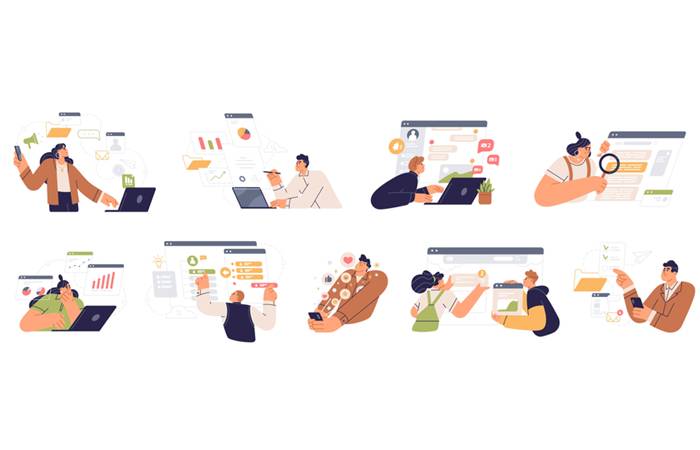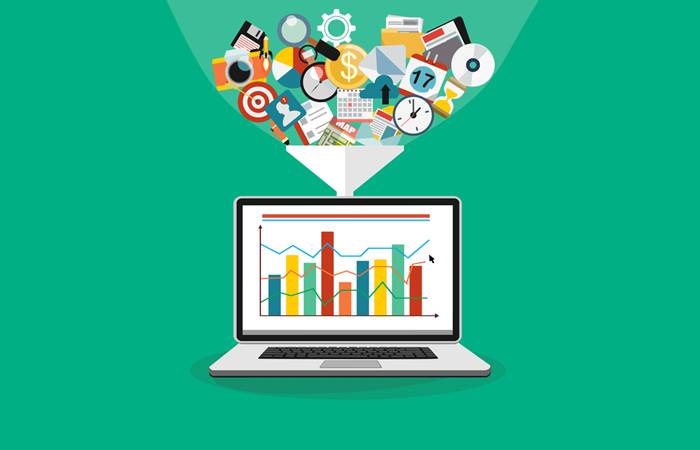Table of Contents
Introduction
The internet is truly your oyster, and you can extract data from any website of your choice. But is this act of Data Scraping or web scraping legal?
Several companies and data experts use web scrapers to extract data online. This data is necessary to make well-informed business decisions and understand market patterns.
Now that we know data scraping is here to stay, let’s look into the legality of this matter and what the scraping process entails. Read on to be enlightened.
What is Web or data scraping?
Data scraping is the automatic data and specific information extraction from online websites with the help of a script or software. While you can do web scraping manually, several data scraping APIs are available in the market to help you in these tasks.
You can use a reputed scraper API to perform web scraping that allows you to do the same more effectively. Otherwise, languages like Python are an excellent pick for web scraping – because they come with a diverse library that is relatively easy to use and is typed dynamically.
This extracted information is stored in several formals such as HTML, Excel, and SQL. Many industry experts also use such information for developing new products, researching the market and analyzing potential investment opportunities.
What are the Various Purposes Behind Web Scraping?
As mentioned previously, data is an essential aspect of business growth. If you, as a business owner, can leverage data to understand metrics, you are winning! Here are some of the common purposes where web scraping is used
- Lead generation
- Brand monitoring
- Contact information accessibility
- Competitive analysis
- Social media scraping
- Extracting financial information
- Research and development

Is Data Scraping Legal?
Web scraping is not illegal as an action. However, you need to follow some legalities and regulations to indulge legally in this process. These are three factors that derive whether or not your data scraping process is legal or illegal:
- Type of data being scraped: Data scraping becomes illegal if you end up extracting data that is non publicly available
- What is your plan of action to use the scraped data
- How has the data been scraped from the website
The answers to the questions mentioned above will showcase whether your plan to extract and use the online data is legal and ethical.
A Guide on How to Do Data Scraping Legally
We now know there is a thin line between legal and illegal web scraping, sohere are some essential pointers to ensure you are not disrupting any law.
Check the Type of Data You are Scraping

You need to worry about two major types of data during your web scraping process – personal data and copyrighted data.
Personal data, or technically speaking, personally identifiable information (PII), is data that can directly or indirectly identify a particular person. This data includes – name, email, phone number, address, username, IP address, date of birth, employment info, bank or credit card info, and medical or biometric data.
On the other hand, copyrighted data is the information owned by organizations and individuals who have explicit control over its capture and reproduction. Copyrighted data include articles, stories, music, databases, videos, pictures, etc.
Creating a Login to Access the Data
An easy method to navigate whether data scraping of a particular site is legal or not is if you have to create an account and log in to see the data.
If that’s the case, you will have to go through the terms and conditions which need to be checked before creating the account. Once the terms and conditions are agreed upon, the site will legally enforce them on your scraping actions.
Your Purpose of Data Scraping Should Be Legal
Many people are unaware that as much as the data being scraped defines the legality of the process, the purpose of doing so makes a lot of difference.
Is the data causing reputation or financial losses to the owners? This is the first and main question that you need to ask yourself.
For instance, you plan on republishing blog content by a famous writer on your website. In this case, you must request the subjects’ permission and check the website policies. But, if you fail to do so without providing proper credit to the owner and you post the content as if it’s yours – you are committing an illegal act and can face personal data protection laws infringement.
Additionally, web crawlers don’t enjoy the freedom to use obtained data for unlimited commercial purposes.
What is a Web Scraping API?
Legal web scraping can be a fruitful yet challenging process. Multiple challenges include handling captchas, proxies, rendering of JavaScript and headless browsers.
But how can we face these challenges and create value? Well, a web scraper API is a great solution to these problems and worries legally. The scraping API will allow your developers to gain programmatic access to any website content with none of the previously listed issues.

Wrapping Up
That’s all from using the process of web scraping! It is best to keep the criteria for legal web scraping in mind before extracting data. Moreover, you can always take the help of web scraping APIs to scrape the relevant website data you want.

![Can Data Scraping Be Done Legally? [2024]](https://www.computertechreviews.com/wp-content/uploads/2022/06/Can-Data-Scraping-Be-Done-Legally.jpg)